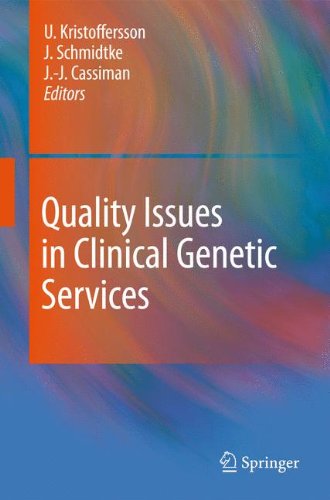

Most ebook files are in PDF format, so you can easily read them using various software such as Foxit Reader or directly on the Google Chrome browser.
Some ebook files are released by publishers in other formats such as .awz, .mobi, .epub, .fb2, etc. You may need to install specific software to read these formats on mobile/PC, such as Calibre.
Please read the tutorial at this link: https://ebookbell.com/faq
We offer FREE conversion to the popular formats you request; however, this may take some time. Therefore, right after payment, please email us, and we will try to provide the service as quickly as possible.
For some exceptional file formats or broken links (if any), please refrain from opening any disputes. Instead, email us first, and we will try to assist within a maximum of 6 hours.
EbookBell Team

4.1
40 reviewsInitially genetic disorders were all considered as rare diseases. At present, in the mid of 2009, the OMIM catalogue contains information on more than 12 000 entries of which about 2500 are available for clinical testing based on the identification of the responsible gene defect. However, altogether it has been estimated that about 8 percent of a population in the economically developed countries will during their lifetime suffer from a disease mainly as the result of their genetic constitution. Adding to that, it is estimated that all diseases have a genetic component, which will determine who will be at a higher than average risk for a certain disorder. Further it is postulated that in the near future, this genetic profiling could become useful in selecting an appropriate therapy adapted to the genetic constitution of the person. Thus, genetic disorders are not rare.
Measuring quality of health care related processes became an issue in the 1990s, mainly in laboratory medicine, but also for hospitals and other health care systems. In many countries national authorities started to implement recommendations, guidelines or legal procedures regulating quality of health care delivery. In laboratory medicine, in parallel, the use of accreditation as a method assuring high quality standards in testing came in use. With the increasing possibilities of performing molecular genetic testing, genetic laboratories needed to become involved in this process.
As many genetic disorders are rare, most laboratories worldwide offered analysis for a specific set of disorders, and, therefore, very early on a transborder flow of samples occurred. While international quality criteria (ISO) have been in existence for a number of years, the regulation of quality issues still may differ between countries.
Based on their personal experience in the varying fields of quality research and clinical implementation of quality criteria in genetic services the authors of this book share their experience and give examples of the implementation of quality issues in national quality systems worldwide. This book, which is the result of the effort of many persons, is destined, to aid laboratory managers and counsellors, health care managers and other stakeholders in national or international health care service to improve the services to the benefit of patients with suspected genetic disorders.